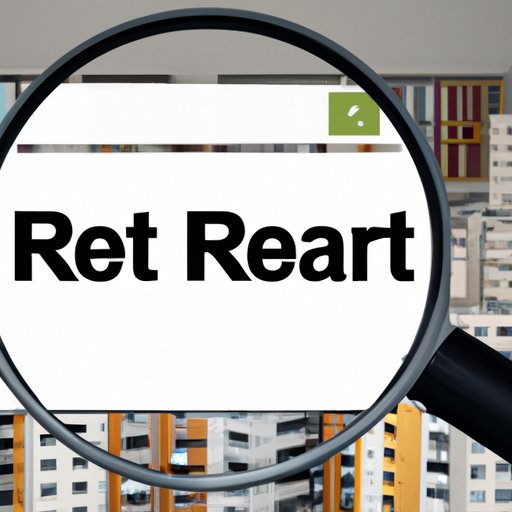Introduction
Renting out residential or commercial properties can be an excellent way to earn money. If you’re considering this type of business venture, it’s important to understand the benefits and challenges that come with running a rental business.
On the plus side, rental businesses can offer relatively low overhead costs and the potential for a steady stream of income. But it’s also important to remember that being a landlord comes with responsibilities such as managing tenants, maintaining the property, and collecting rent. With the right preparation and knowledge, however, you can make your rental business a success.

Research the Rental Market in Your Area
The first step to starting a rental business is to research the rental market in your area. Understanding rental trends and analyzing rental prices in your local area will help you determine what kind of properties are in demand and how much you can charge for rent.
Look into the type of properties that people in your area are most likely to rent. This could include single-family homes, apartments, condos, duplexes, or commercial spaces. You should also consider the amenities each type of property offers and the rental rates for similar properties in the area.
Create a Business Plan
Once you’ve done your research, it’s time to create a business plan. Your business plan should outline your goals and objectives and provide strategies for achieving them. It should also include a financial plan, which should include estimates for start-up costs, operating expenses, and expected revenue.
Your business plan should also include a timeline for launching your rental business. This timeline should include when you plan to purchase properties and when you plan to start renting them out.
Obtain Financing
The next step is to obtain financing for your rental business. There are several options available, including traditional loans, equity investments, and crowdfunding. Depending on your financial situation, you may be able to secure a loan from a bank or other lender.
You can also look into equity investments, which involve offering a portion of your company’s ownership in exchange for funding. Crowdfunding is another option, which involves raising funds from individual donors or investors.
Find Rental Properties
Once you have secured financing, you can start looking for rental properties. When searching for properties, consider location, amenities, and pricing. Look for properties that meet your goals and budget and that are situated in desirable areas.
You should also keep in mind any zoning requirements or restrictions that could affect your ability to rent out the property. It’s also important to ensure that the property is up to code and that all necessary repairs and renovations are completed before you begin renting it out.
Develop Marketing Strategies
Once you’ve found rental properties, it’s time to start marketing them. Leverage online channels such as social media and search engine optimization (SEO) to reach potential tenants. You can also utilize traditional methods such as advertising in local newspapers and distributing flyers.
It’s important to create an effective marketing strategy that will help you reach your target audience and get the word out about your rental properties. Developing a website or blog for your rental business can also be helpful in attracting tenants.
Set Up a Tenant Screening Process
Before renting out a property, you should establish a tenant screening process. This process should include policies for reviewing applications and selecting tenants. Make sure to thoroughly review each applicant’s credit history, employment history, and references.
It’s also important to develop a policy for handling late payments and evictions. Having these policies in place will help protect both you and your tenants.
Manage the Properties
Once you’ve found tenants, it’s important to manage the properties properly. This includes collecting rent on time, maintaining the properties, and addressing tenant concerns. You should also stay up to date with local laws and regulations related to rental properties.
Having a good relationship with your tenants is key to ensuring that your rental business runs smoothly. Make sure to communicate clearly and respond to issues in a timely manner.
Conclusion
Starting a rental business can be a great way to generate passive income. To get started, it’s important to do your research, create a business plan, obtain financing, find rental properties, develop marketing strategies, set up a tenant screening process, and manage the properties. With the right preparation and knowledge, you can make your rental business a success.
For more information, check out our resources page for additional help and advice on starting a rental business.
(Note: Is this article not meeting your expectations? Do you have knowledge or insights to share? Unlock new opportunities and expand your reach by joining our authors team. Click Registration to join us and share your expertise with our readers.)
